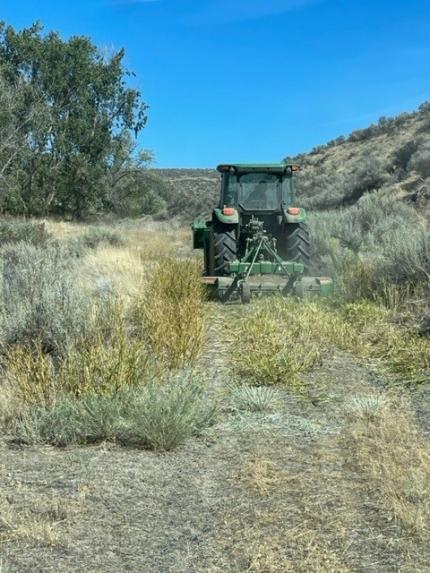Managing Wildlife Populations
Waterfowl Banding Wrap Up: District 4 Wildlife Biologist Fidorra, with the help of volunteers, Natural Resource Technician Maderbach, and Scientific Technician Klienhenz completed waterfowl captures for the season. Swim in traps were used to capture dabbling ducks, with around 700 mallard bands placed out by the team. Many other species were also banded and encountered, which all contribute to the Pacific Flyway models.
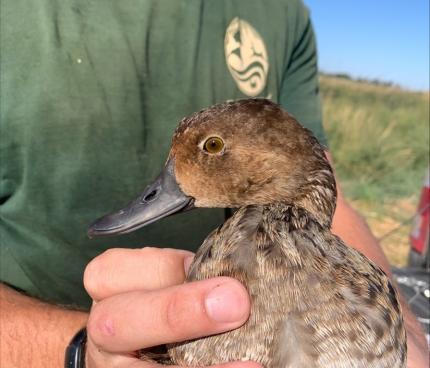
Wildlife Conservation Discussions: District 4 Wildlife Biologist Fidorra participated in the Washington Shrubsteppe Restoration and Resiliency Initiative round table on wildlife species management for upcoming needs in the Columbia Basin as well as submitted regional proposals for Washington State Department of Fish and Wildlife’s next best things exercise on near term conservation actions we might pursue for burrowing owls.
Providing Recreation Opportunities
L. T. Murray Pheasant Hunting: Natural Resource Technician Blore and Assistant Manager Winegeart released pheasants at the L. T. Murray’s Green Gate release site. Over the years, Winegeart has noticed a diverse mix of upland bird hunters by age and gender at this site. The site’s distance from town, access, and topography makes it a valuable release site for new and young hunters to get their feet wet hunting upland birds in some semi-arid desert.
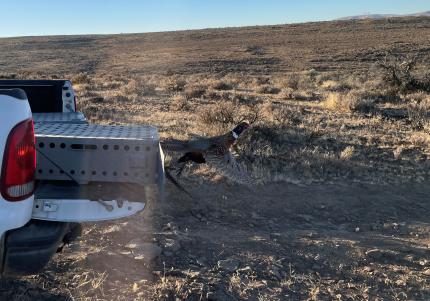
Pheasant Releases: District 4 Wildlife Biologist Fidorra and Conflict Specialist Hand released pheasants at sites in Franklin County in advance of the youth and senior season opener. Pheasants were placed at Big Flat and Lost Island United States Army Corps of Engineers Habitat Management Units, and the Hope Valley Unit of the Sunnyside Wildlife Area. Toothaker in Benton County will not be used for releases this year while the site recovers from a fire.
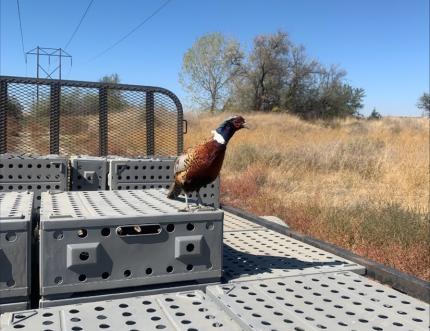
Sunnyside Johnson Wetland: Sunnyside Wildlife Area Assistant Manager Ferguson has been busy mowing the north half of the Johnson Wetland area in preparation for the upcoming waterfowl season. The wetland is nearly complete now between the lessees harvesting a large portion of reed canary grass for cattle feed and wildlife area personnel mowing.
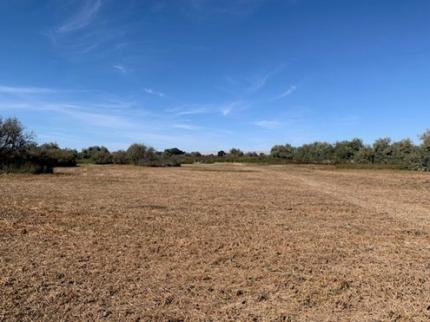
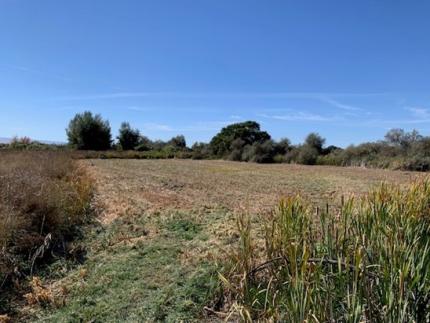
Providing Conflict Prevention and Education
Rattlesnake Hills Elk: District 4 Wildlife Conflict Specialist Hand monitored elk activity and pressured elk away from crops near irrigated tree fruit and vineyard areas. The trail camera was checked and maintained along a heavily traveled route elk use to access wheat fields. Several higher elevation wheat fields have now been seeded and many are showing good germination.
West Richland Deer: District 4 Wildlife Conflict Specialist Hand continued to coordinate with an owner of several small corn fields that have been damaged by deer near the Yakima River. One master hunter harvested a deer and multiple archery hunters are hunting the area.
Hanford Injured Bull Elk: District 4 Wildlife Conflict Specialist Hand and Enforcement staff members responded to an injured bull elk that was involved in a vehicle collision along Highway 240 on Hanford. Prior to arrival on scene, Department of Transportation picked up the carcass and dumped it in their pit.
Mesa Area Deer: District 4 Wildlife Conflict Specialist Hand responded to a call of a deer that was stuck in a pond at the sewage treatment facility in Mesa. The shallow pond is lined with slick plastic making it difficult for the deer to gain traction. A ramp made of wood and wire fencing and covered with outdoor carpet was deployed in hopes of the deer using it to escape, but unfortunately the deer died.
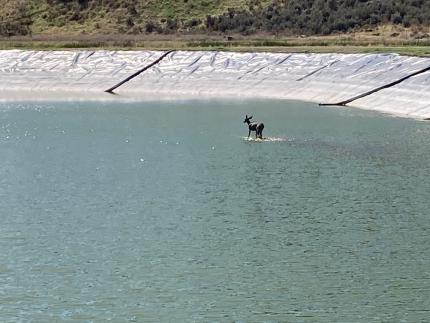
Kittitas County Conflict: Conflict Specialist Wetzel worked with several hay growers who were having problems with elk in crops. One has requested cost share fencing. Wetzel also worked with several landowners who were having problems with deer in crops and yards.
Easton Bear Conflict: Conflict Specialist Wetzel worked with several landowners who were having problems with bears. A trap was set near Easton but so much attractant was available in the neighborhood that the bear did not enter the trap.
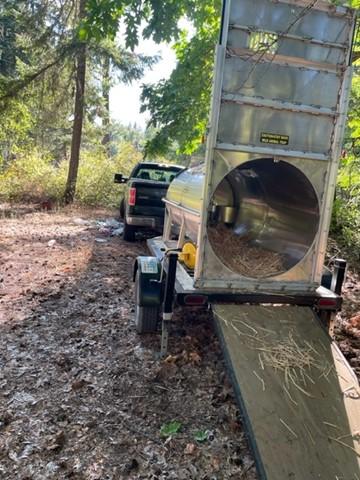
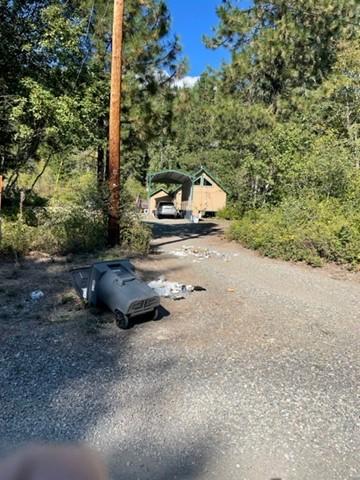
Yakima County Conflict: Conflict Specialist Wetzel worked with several hay and orchard growers who were having problems with elk in crops. One has requested cost share fencing. Wetzel also worked with several hay and orchard growers who were having problems with deer in crops. Specialist Wetzel worked on contract range rider invoices for range riding costs. Several injured deer and deer tangled in netting and fencing were reported. Several deer with arrows were reported, as well as injured fawns or fawns with no doe observed.
Conserving Natural Landscapes
Benton County Water Stargrass Harvester: Sunnyside/Snake River Wildlife Arear Manager Kaelber, Assistant Manager Jahns, and Technician Manderbach, along with other Department of Fish and Wildlife staff members, attended a water stargrass harvester informational demonstration hosted by the Benton County Conservation District. Wildlife area staff members were able to watch the water stargrass harvester in action, as well as ask questions about function and future collaborative uses of the machine in the Yakima River.
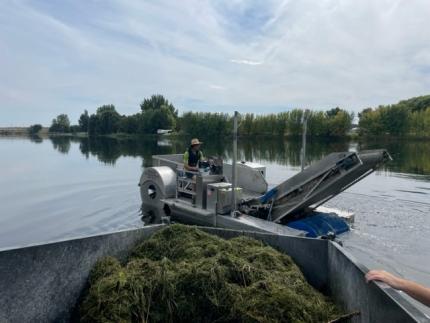
Colockum Wildlife Area Reseeding After Timber Thinning Project: Colockum Wildlife Area staff members spent time reseeding non “green dot” roads opened up for the Colockum Forest Restoration Project. About ten miles of pre-existing, grown over logging roads were re-opened during this project and these roads will now be reseeded, water barred, and blocked for vehicle use. This light abandonment prevents further motor vehicle use, improves habitat and allows the roads to be used some time in the future for additional forest management.
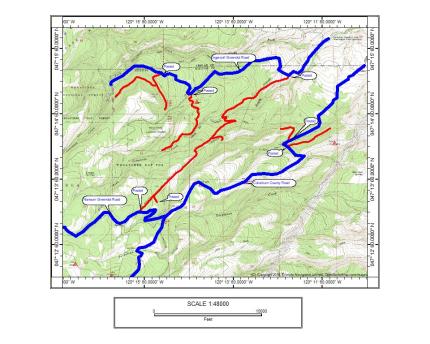
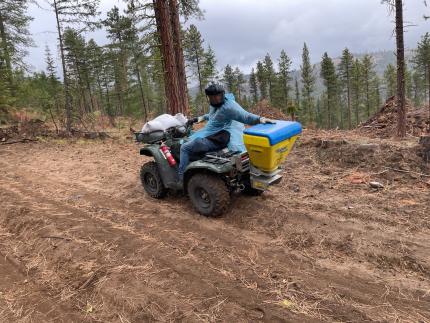
Colockum Wildlife Area Parking Lot Improvements: Colockum personnel continued improvements to the headquarters’ parking lot. Work completed included installing a steel panel round corral for horses, as well as a new stock tank to supply water for horses, dogs, the occasional elk, mule deer, and bighorn sheep that frequent the area.
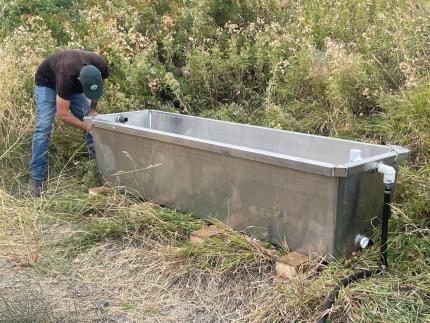
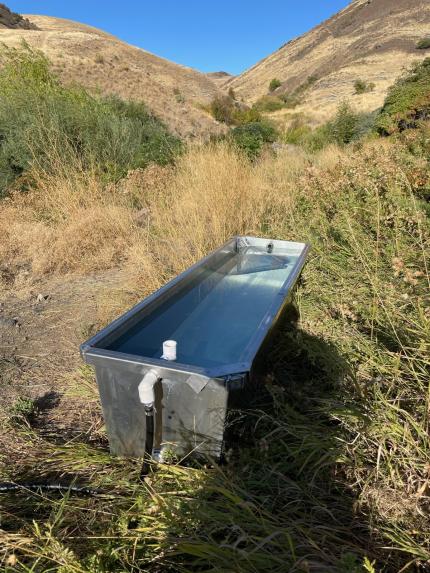
Providing Education and Outreach
Naches Sportsman’s Day: L. T. Murray Wildlife Area Manager Morrison and Assistant Manager Winegeart worked Washington Department of Fish and Wildlife’s booth at this year’s Naches Sportsman’s Days. Morrison primarily fielded questions from the public while Winegeart focused on providing an opportunity for people that haven’t hunted to learn how to properly handle a firearm at the range and a safety refresher for experienced hunters.
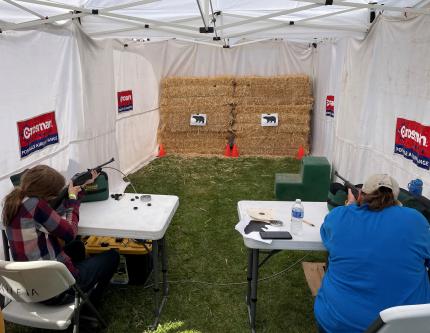
Oak Creek Wildlife Area Naches Sportsman’s Days: Oak Creek Wildlife Area staff members, various Department of Fish and Wildlife (Department) staff members, and the Friends of Oak Creek Volunteers participated in the Naches Sportsman’s Days event and parade. Volunteers and Department staff helped answer questions at the informational booth while other staff members and volunteers operated a pellet gun range to teach people and youth about hunter safety.
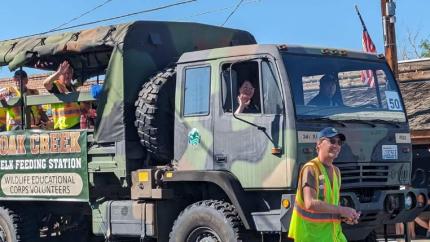
Other
Shop Safety on the L. T. Murray Wildlife Area: L. T. Murray staff members learned a valuable lesson regarding using linseed oil to preserve wood handles on tools. After depositing some shop paper towels stained with the oil in a garbage can, the more saturated towel which was on the bottom of the pile began to smoke heavily and would have ignited had employees not been present to remove the rags. This was a near miss accident and a good reminder to read and understand the label on all chemicals used.
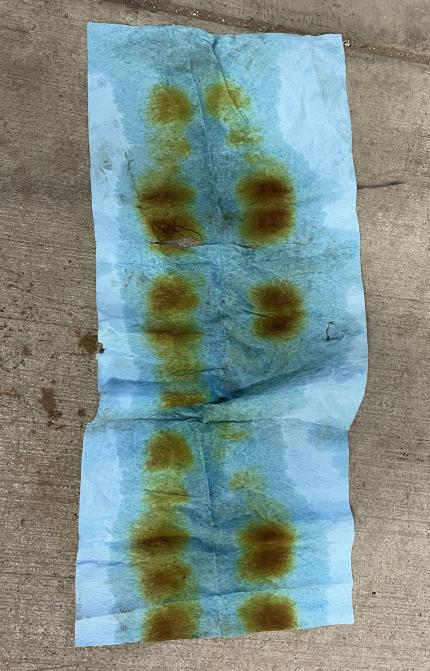
Oak Creek Wildlife Area Truck Turn Around Resurfacing: Oak Creek Wildlife Area Natural Resource Technician Boggs started work on the Cowiche truck turn around. Leveling this area will improve conditions for unloading hay and turning trucks around.
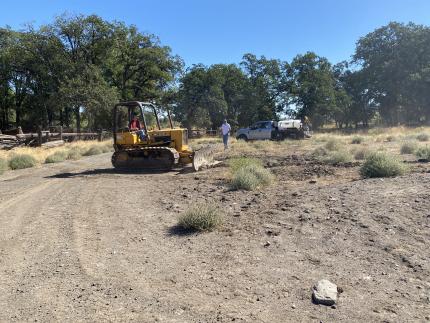
Sunnyside/Snake River Access Sites: Sunnyside Snake River Wildlife Area Assistant Manager Ferguson removed hornet nests and restocked all hunter registration boxes as well and mowed weeds in the Sunnyside Unit parking lots. Assistant Manager Jahns also continued to mow access sites and roads, including all roadways within the Thornton Unit in preparation for the upcoming hunting seasons.
